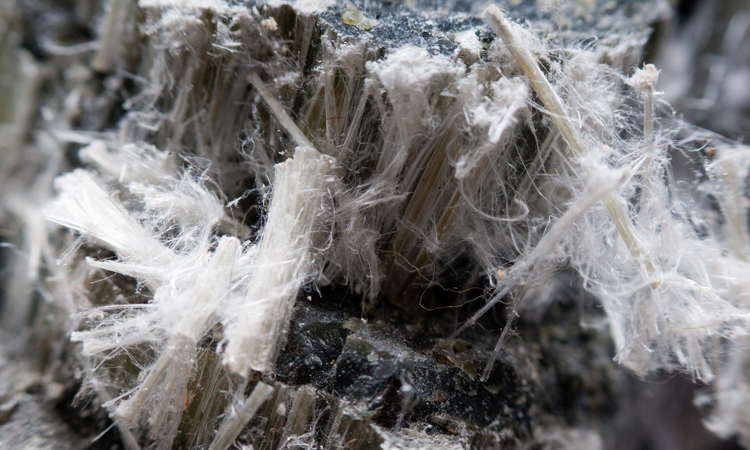Special report also highlights ADAO, Linda Reinstein, Paul Zygielbaum

On March 13, PBS NewsHour dedicated a 10-minute segment of its nightly program to report on asbestos use in the United States. The report, by PBS correspondent Miles O’Brien, featured interviews with Asbestos Disease Awareness Organization (ADAO) President and CEO Linda Reinstein, asbestos researcher Dr. Brenda Buck and a victim of an asbestos-related disease.
Reinstein, who recently introduced the Alan Reinstein Ban Asbestos Now Act of 2019 to Congress, wrote of her impression of the PBS segment in an ADAO press release:
“In fifteen years of doing this work, I have never before seen one report bring together the voices of industry, science, victims and advocates. Thanks to Miles’s extensive and diligent reporting, viewers around the world will hear the truth about this killer fiber, exposure risks and health impact, the deadly lack of policy and the industry’s dangerous spin on the facts.”
Featured prominently throughout the segment is Reinstein’s close friend, mesothelioma warrior and longtime ban-asbestos advocate, Paul Zygielbaum. Part of what makes the segment so powerful is hearing Zygielbaum’s thoughtful words of critique on the history of asbestos in the United States and the system that continues to keep it legal. Zygielbaum was a longtime mesothelioma patient who died in January 2019 after 15 years of fighting the disease. The segment contains his last recorded interview.
The Legacy of Deadly Asbestos
It was 50 years ago that a landmark study was released detailing the undeniable deadliness of asbestos. Since then, it has remained a public health crisis that each year takes up to 40,000 American lives. In spite of this, asbestos continues to get little attention.
When PBS correspondent Miles O’Brien asked Zygielbaum why a blind eye has been turned to asbestos, he didn’t hesitate in his response: “I think there’s decades of industry lobbying behind it.”
To understand Zygielbaum’s point, one need not look further back than 1989, when the Environmental Protection Agency (EPA) banned the manufacturing, importation, processing and sale of products that contained asbestos. Only two short years later in 1991, the chemical industry fought against and successfully overturned the EPA’s ban.
‘A Broken Regulatory Process’
O’Brien’s PBS NewsHour segment highlighted the contradiction that the U.S. asbestos industry has capitalized on for decades. While many Americans now know that asbestos is an incredibly dangerous carcinogen and responsible for thousands of deaths, asbestos remains legal and continues to be imported. O’Brien reports:
“Asbestos is a posterchild for a broken regulatory process. It is still used by U.S. industry, present in 30 million homes and is a contaminant in consumer products, including children’s toys and makeup.”
While there seemed to be renewed hope for an asbestos ban in 2016, when the revised Toxic Substances and Control Act (TSCA) was signed into law, that hope has since faded. The revised TSCA gave the EPA more power to impose significant regulations or even to ban harmful carcinogens like asbestos. All progress toward more regulation, however, has been stymied since Donald Trump took office.
Shortly after his election, Trump appointed Nancy Beck, a former lobbyist for the American Chemistry Council (ACC), to oversee the regulation of toxic chemicals and substances. The ACC is the largest chemical lobbying firm in the country and is responsible for protecting the rights of the industry. Because asbestos benefits the chemical industry financially, lobbying organizations like the ACC have fought hard to keep it legal.
Can Change Come to Washington?
Shocking though it may seem, over 6,000 tons of asbestos have been imported into the United States since 2011. Just last year, controversial photographs surfaced showing pallets of asbestos headed for importation into the United States from the Russian mining company Uralasbest. Stacked high with bags of asbestos and wrapped in plastic wrap, the Russian imports were stamped with a seal of approval and the face of Donald Trump alongside Russian words that translated to “Approved by Donald Trump – 45th President of the United States.”
Reinstein admits the fight to ban asbestos is an uphill one and progress is slow-going.
“It’s a David-and-Goliath battle. And we are the small person trying to move big mountains. There’s huge money that flows,” she said.
Despite the powerful backing of asbestos industry supporters, both Reinstein and Zygielbaum maintained hope that there will eventually be a tide-shift in the way asbestos is regulated.
“I’m optimistic about change in Washington,” Zygielbaum said. “I think it can happen. I don’t think we’re done yet. But I think, ultimately, we will win.” When O’Brien told Zygielbaum he is an “unlikely optimist,” Zygielbaum responded: “That’s what keeps me going.”
The mesothelioma community mourns the loss of any life taken prematurely from asbestos-related disease, including Zygielbaum’s. Their memories and collective mission, however, are kept alive through the promising advocacy work of the ADAO.
The PBS NewsHour segment is viewable online for free. Click here to watch the segment.




